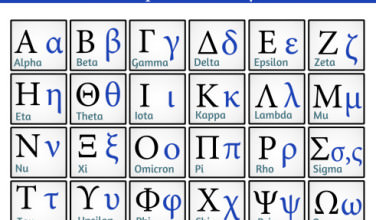Understanding Articles in the Greek Language
Comments Off on Understanding Articles in the Greek Language
 In order to really make any progress studying the Greek language, you really need to get a handle on certain grammatical concepts. One of the most basic of them is that of the “article.” Here’s a look at what an article is as well as some information about how this all pertains to the Greek language:
In order to really make any progress studying the Greek language, you really need to get a handle on certain grammatical concepts. One of the most basic of them is that of the “article.” Here’s a look at what an article is as well as some information about how this all pertains to the Greek language:
Definition of an “Article” in Grammar
According to Webster’s Dictionary, a “noun” is defined as a word that serves, “as the subject of a verb, can be interpreted as singular or plural, can be replaced with a pronoun, and refer to an entity, quality, state, action, or concept.”
In the English language, nouns aren’t paired with an article because they aren’t grouped into various genders. This isn’t the case in the Greek language. Nouns are considered to be either Masculine, Feminine, or Neuter. Each of these nouns are paired with what is known as an “article.”
According to Webster’s Dictionary, an “article” as it pertains to grammar is defined as, “any of a small set of words or affixes (such as a, an, and the) used with nouns to limit or give definiteness to the application.” Articles are further classified as being definite articles or indefinite articles. Here are the definitions, as defined by Webster’s Dictionary:
- Definite Article. “the word the used in English to refer to a person or thing that is identified or specified; also : a word that is used in a similar way in another language”
- Indefinite Article. “he word a or an used in English to refer to a person or thing that is not identified or specified”
Articles in the Greek Language
In the English language, articles are the words that accompany nouns in a sentence. Articles take on the same role in the Greek language. However, there is an additional set of rules in place concerning articles in the Greek language. Since nouns in Greek are grouped into masculine, feminine, and neuter, this means that the articles change depending on the gender of the noun. The articles further change depending on if it’s the singular or plural form of the noun and also what case the noun is. A case is defined by Webster’s Dictionary as, “an inflectional form of a noun, pronoun, or adjective indicating its grammatical relation to other words.”
While learning Greek, the concept of genders and cases can be confusing when first learning about it. In this case, we are only going to show you the articles for the singular nominative, or singular subject case.
Definite Articles
- Masculine – o πατέρας, O Pateras, The Father
- Feminine – η μητέρα, I Mitera, The Mother
- Neuter – το παιδί, To Pethi, The Child
Indefinite Articles
- Masculine – ένας πατέρας, Enas Pateras, A Father
- Feminine – μία μητέρα, Mia Mitera, A Mother
- Nueter – ένα παιδί, Ena Pethia, A Child
If your goal is to learn Greek casually (for travel, or to just have a functional understanding), you won’t need to spend a lot of time obsessing over this concept. It’s enough to simply be aware of the basics. When memorizing words, however, it is a good idea to treat the article and the noun as one unit and simply learn them together.
The Learn Greek section on GreekBoston.com was written by Greeks to help people understand the conversational basics of the Greek language. This article is not a substitute for a professional Greek learning program, but a helpful resource for people wanting to learn simple communication in Greek.
Categorized in: Learn How to Speak Basic Greek
This post was written by Greek Boston





